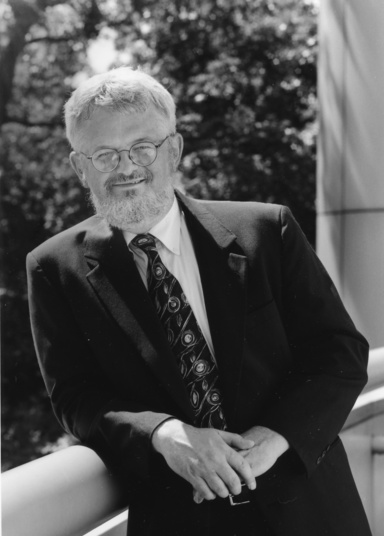Herb Hovenkamp understands that textbooks are expensive and law students don’t have a lot of money. Which is why he decided to give away his new book for free.
Hovenkamp, professor of law in the University of Iowa College of Law, wrote his free open source casebook for a class he taught last spring semester, Innovation and Competition Policy. It’s not the first book he’s written. With 14 titles to his credit dating to 1978, mostly about antitrust law and business competition policy, he’s a publishing veteran.

But when he started writing the casebook for his new class, he thought about how much it would cost his students if he went through the traditional publishing process that gives him no control to set the price. Similar books on the market cost well over $100, and he didn’t want to force his students to pay that much for a casebook.
So instead of going through the time-consuming and expensive traditional publication route, he put the new text online as an open source book. It’s available free not only to his own students, but to any student, professor, scholar, attorney, or judge around the world looking to learn more about how American commercial law impacts business innovation.
Hovenkamp says he doesn’t know of any other law professors who have written their own open source textbooks or casebooks. A few are considering it, he says, but none have actually done it.
The book takes a wide-ranging look at its topic, examining not only the impacts of antitrust and intellectual property law, but also things like market structure, the impact of the technology, net neutrality, and digital copyright.
Hovenkamp says the open source book has an advantage over traditional bound publishing because it was ready for use as soon as he was finished writing, editing, and loading it to the Web. No waiting several months for layout, galley review and printing and binding.
The book also focuses directly on what he needs and isn’t filled with dozens or hundreds of pages unnecessary for his class. The chapters can also be easily updated before the start of each semester to reflect new court decisions or legal thinking. One of the difficulties with traditional books, especially in a field as fluid as competition policy, is that they become increasingly obsolete with every new decision or law until their next revision.
The book was reviewed favorably by the American Bar Association, which called it “an innovative approach to teaching innovation,” in its Antitrust Source publication.
Hovenkamp says that his students liked the book because more and more of them prefer to do as much of their reading as they can on their laptops or tablets, and an e-book facilitates that.
And they especially liked the price.
“I’m always conscious of the unacceptably high costs students have to pay for books in law school, especially casebooks,” says Hovenkamp. “I don’t want to force them to pay money they don’t have to pay.”
Since it’s available to anyone, the book has also caught on outside the UI law school. Hovenkamp says it’s been downloaded almost 1,000 times, even though his class had only 37 students.
The casebook, Innovation and Competition Policy: Cases and Materials—An Open Source Casebook is available online and at no charge at www.uiowa.edu/~ibl/InnovationCompetitionPolicyCasebook.shtml.